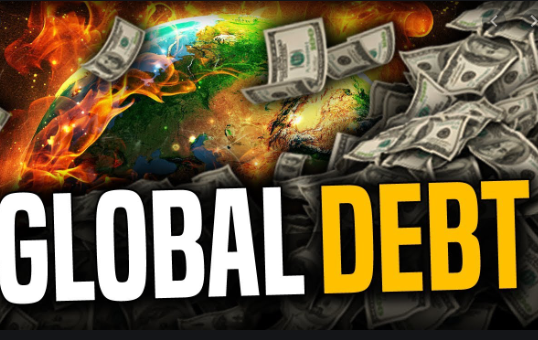Daron Acemoglu
With more than$7.5 trillion owed to external creditors, emerging economies’ debt-service costs are becoming increasingly onerous just when they need as much fiscal space as possible to confront the Covid-19 crisis. While there is a strong case for cancelling much of this debt, many key players oppose doing so, arguing that it would limit these countries’ access to international markets in the future, thereby reducing investment and growth.
In fact, the evidence for this view is fairly weak. Far from reliably boosting investment and growth, international financial flows are more likely to contribute to volatility in emerging markets and developing economies. Even so, it has long been assumed in academia and policy circles that international finance helps emerging economies build more effective institutions, enabling them to develop their banking system and stock markets, for example. Opponents of debt forgiveness have also argued that emerging markets need the “discipline” that international bond markets provide because the threat of capital flight constrains misrule by autocrats and populists.
Hence, during the European debt crisis, Greeks were discouraged from defaulting on their debts to foreign banks, lest they destroy their credit profile. And even after Greek voters had rejected the terms imposed by the troika of official creditors (the European Commission, the European Central Bank, and the International Monetary Fund), the country’s left-wing government ultimately made a deal, leading many policymakers to conclude that market discipline had worked.
But this narrative no longer rings true. Far from checking autocrats, international finance has been facilitating them. For example, in South Africa between 2009 and 2018, foreign funds continued pouring in even after it was obvious that then-President Jacob Zuma’s kleptocratic government was hollowing out the country’s economy and institutions. When Zuma was finally kicked out of power, it was because his own party, the African National Congress, took steps to remove him. The whip of international markets had little to do with it.
Similarly, though Turkish President RecepTayyipErdoğan’s attacks on his country’s institutions have coincided with declining investment and productivity growth, foreign investors have saved him. With money still flowing into finance a growing current-account deficit and prop up a faltering economy, Erdoğan has been able to consolidate his rule, even establishing a presidential system that subordinates parliament and the courts to him. As with Zuma, the greatest resistance Erdoğan faces comes not from international markets, but from domestic politics. In municipal elections last year, his party was defeated in most of Turkey’s major cities, leaving his grip on power significantly weakened.
Beyond these examples, there is also mounting evidence that international finance has overtly facilitated corruption and criminal activities in emerging markets, as in the case of Goldman Sachs’s alleged involvement in Malaysia’s $700 million 1MDB fraud scandal. None of these cases should come as a surprise. Why wouldn’t international financial institutions seize on opportunities to lend on attractive terms to autocrats, or to boost profits by helping kleptocrats and dodgy businesses cook the books and exploit tax havens?
To move beyond this broken status quo, we should seek forms of debt restructuring and forgiveness that would cut off corrupt regimes. One idea is to establish an international, impartial body to set the rules for fair lending practices by international banks. The same institution could then determine whether a country’s current debts were accumulated under democratic governments, whether they are the legacy of kleptocratic and fraudulent borrowing sprees, and whether their repayment or servicing would impose an undue hardship on the population.
For countries that borrowed under democratic governments, external debts could be restructured on generous terms, and similar options could be provided to long-term creditors and those who have undertaken foreign direct investment in the emerging world (because these forms of lending are less likely to end up in autocrats’ pockets). For countries in the second group, the “odious debts” that were accumulated under past autocratic or corrupt governments should be written off. Ordinary citizens should not suffer the consequences of deals made between financial institutions and politicians they did not elect. Investors who struck Faustian bargains with kleptocrats should not benefit from international protection.
As for the third group – governments facing socially intolerable repayment or servicing costs – there is a clear case for not forcing these countries into deeper poverty, even if their debts were incurred under democratically elected governments. The assumption that a massive round of debt restructuring and forgiveness would mean the end of plentiful capital for emerging markets is not well-founded. Even if these countries refused restructuring or forgiveness, their debt overhangs would prevent further investment in infrastructure, poverty alleviation, and new technologies.
Equally important, the cancellation of odious debts would improve the incentives governing international financial markets, because lenders would have to think twice before propping up authoritarian and corrupt regimes. And this change could provide an impetus for designing a new framework for global financial integration.
This approach will work only if it does not become a blanket condemnation of international finance. Many developing countries still need resources for investment and infrastructure, and there are still plenty of responsible, regulated international financial flows that they can tap. We must not create a situation in which emerging markets and developing countries are left without any access to finance at all.
To that end, debt restructuring and cancellation should be clearly framed as an emergency measure that will discriminate between those institutions that have acted properly and those that have entered into deals with corrupt and authoritarian governments. We need a new international body not only to oversee the rules of future financial engagements and monitor financial malfeasance but also to backstop a new global framework of norms and standards. Only that can ensure the system’s legitimacy in the eyes of developing countries and international financial institutions alike.
The writer is Professor of Economics at MIT and co-author with James A. Robinson of The Narrow Corridor: States, Societies, and the Fate of Liberty. ©Project Syndicate.
